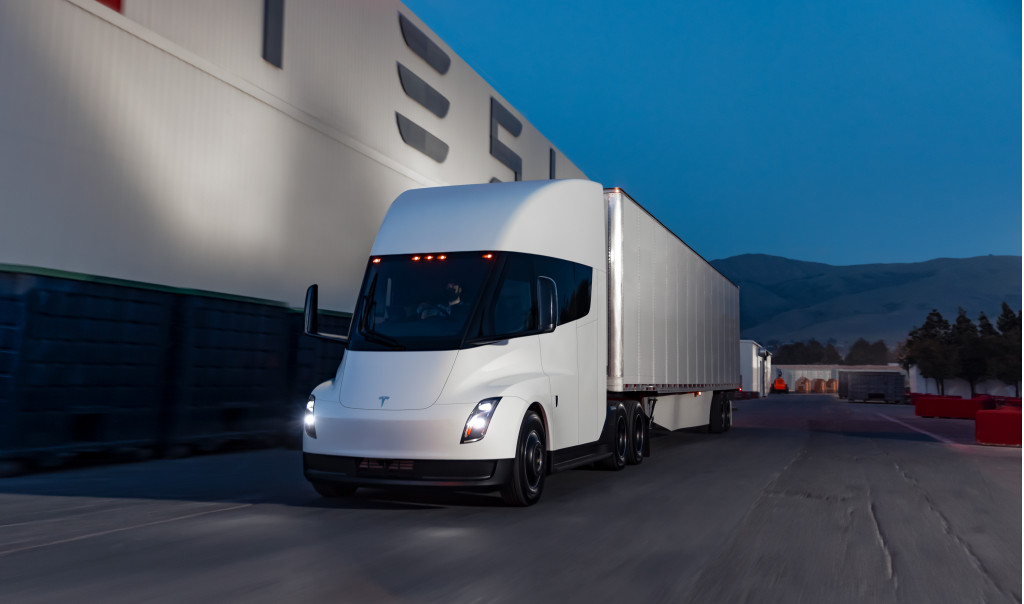Tesla is seeking nearly $100 million in U.S. government funding to build nine semi-truck charging stations on a route from the southern border of Texas to the automaker's original factory in Fremont, California, Bloomberg reported Tuesday.
The plan reportedly calls for each site to have eight 750-kw chargers for the Tesla Semi plus four chargers for other makes, essentially following the Megawatt Charging Standard (MCS) for commercial vehicles formalized last summer. The Semi connectors would likely be Tesla's NACS V4 charge connector, which the company has said is good for 1 megawatt.
The plans were discussed in emails from Tesla executives to the Texas Department of Transportation between May and early June, which were examined by Bloomberg. In the emails, Tesla reportedly told Texas officials that the project could qualify for federal grants being distributed under the Bipartisan Infrastructure Law, and asked officials to write a letter in support of the project to be included in Texas' funding application, which was submitted in June.

Tesla Semi (Courtesy of Tesla, Inc.)
California's South Coast Air Quality Management District led the application on behalf of Texas-based Tesla. a representative told Bloomberg the automaker is seeking $97 million of federal funding and plans to pay $24 million itself.
Bloomberg notes that it is unclear if Tesla will proceed with the truck-charging project if the application is not approved. The Federal Highway Administration, which is charged with overseeing the charging-infrastructure grants, is currently reviewing applications and is expected to name recipients later this year.
The roughly 1,800-mile route begins in Laredo, Texas, which is about 240 miles from Tesla's headquarters in Austin and 150 miles from the site of a new factory the company is building in Nuevo Leon, Mexico. Tesla in 2022 was given an exclusive lane at the Mexican border crossing to help move parts from suppliers in Mexico to its U.S. factories in Texas and California, Bloomberg noted. The charging project could electrify at least some of those deliveries, which are currently made with internal-combustion trucks.

Tesla Semi (Courtesy of Tesla, Inc.)
Electric truck stops and charging stations involve far greater challenges for siting because of their impact on the grid, and the need to avoid expensive "demand charges." These are premiums levied by utilities when electricity demand spikes—such as when a number of electric semi trucks are charging at the same time.
As more electric commercial trucks enter service, charging projects are beginning to crop up. A project involving fleet operator NFI and Electrify America is installing 34 fast-charging stations for heavy-duty trucks by the end of 2023, but that's not geared toward the megawatt charging likely needed to make longer hauls practical.
WattEV is also establishing a 40-stall truck-charging site in Bakersfield, California. That's along the route Tesla is reportedly proposing.












